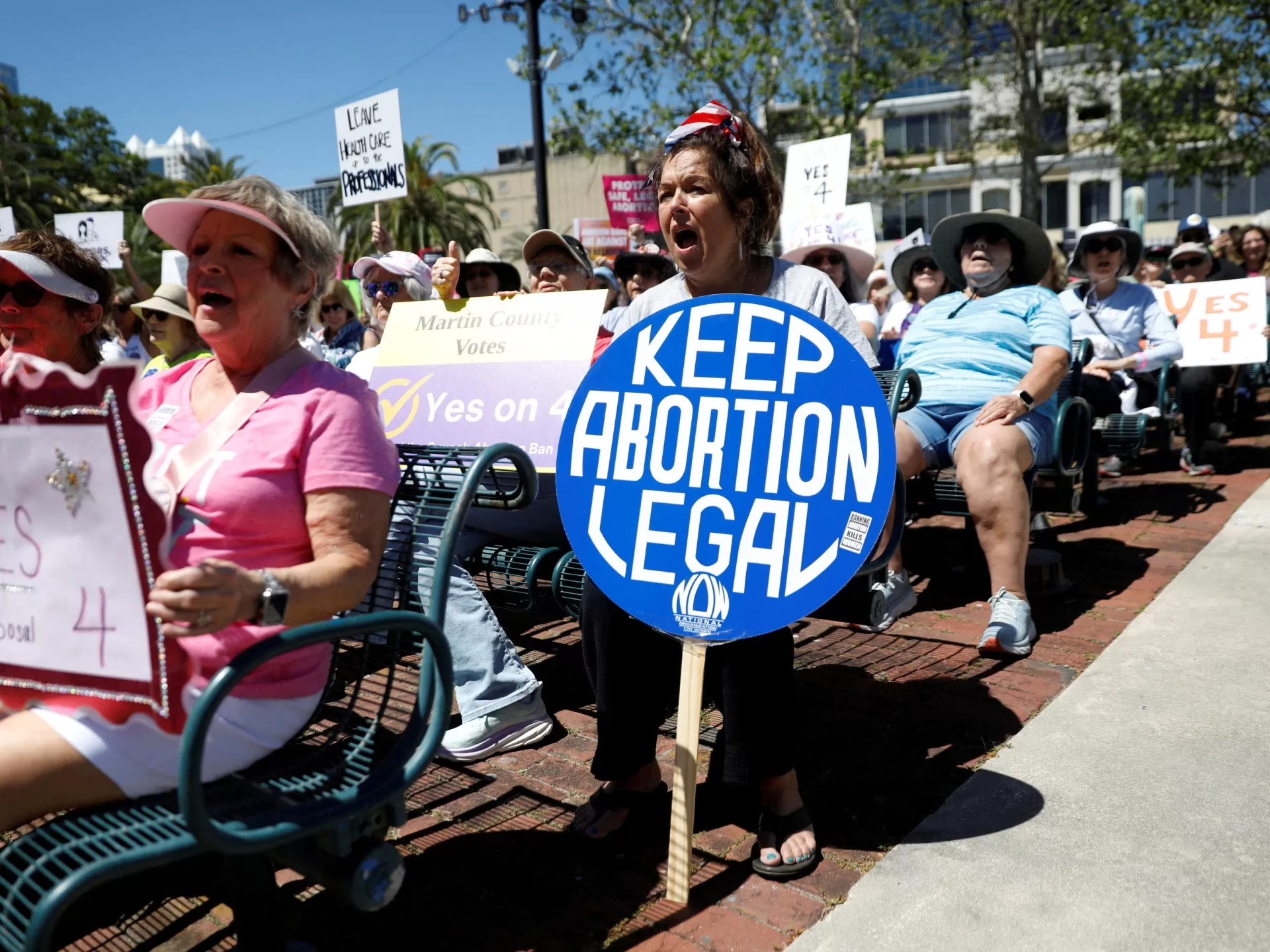In June 2022, the United States Supreme Court overturned its own decision from 1973 in the landmark Roe v Wade case, which until then protected the right of American women to legal abortion. This resulted in a wave of state-level initiatives to ban abortion. Today, 21 US states partially or fully restrict access to abortion.
As a result, women in the US face significant barriers in obtaining safe abortions – with legal uncertainty and lengthy court cases to determine their access to reproductive healthcare. These restrictions have affected not only women seeking to terminate an unwanted pregnancy but also those who have suffered miscarriages, often limiting their access to emergency medical assistance.
Medical colleagues in the US confirm that these ever-changing restrictions are leaving many fearful of prosecution, forcing doctors to make agonising decisions that could compromise their ability to provide essential and lifesaving care.
As healthcare workers, we have seen what happens when women are denied this vital medical service.
Abortions performed outside of formal medical care, in unsanitary conditions, put women and girls at high risk of serious health problems, even death. Each year, an estimated 35 million people around the world resort to unsafe abortion, with devastating consequences. Countless lives are lost, and hundreds of thousands more women are left to endure the physical and emotional trauma of preventable complications like infertility and chronic pain.
However, as we mark this year’s International Safe Abortion Day, there is also some good news to celebrate: Medical support for safe abortion is growing globally.
As medical professionals, we are led by the clinical evidence that requires access to safe abortion be treated as essential healthcare, as codified in the World Health Organization’s updated Safe Abortion Guidelines. And we see that across the world many governments, guided by medical professionals’ insights and demands, are passing laws and policies to expand access to safe and legal abortion care in a bid to protect women’s health.
Indeed, while there is a major setback in the United States, the global trend is actually one of progress: In the last 30 years, more than 60 countries and territories have liberalised their abortion laws.
In Benin, in 2021, the parliament passed a bill to amend the Sexual Health and Reproduction Law, expanding access to legal abortion to reduce both maternal mortality and unsafe abortions in the country.
This legislation was supported by the National College of Gynecologists and Obstetricians of Benin (CNGOB), recently quoted by the International Federation of Gynecology and Obstetrics (FIGO) as saying they “are proud that our government has considered our clinical evidence and our first-hand insights to address the impact of unsafe abortions – a leading cause of maternal deaths and disability in Benin”.
Elsewhere in West Africa, Sierra Leone’s government moved closer to decriminalising abortion in 2022 after the cabinet “unanimously backed a bill on risk-free motherhood”.
This year, France made history by enshrining the right to abortion in its constitution. President Emmanuel Macron signed the constitutional amendment on International Women’s Day (March 8).
As medical experts and as SheDecides Champions, we welcome these advancements. Safe abortion services are a key aspect of women’s healthcare because they allow women to make informed choices about their bodies, lives and futures. Without it, women face serious health risks.
The statistics speak for themselves. Unsafe abortions remain a catastrophic public health emergency, accounting for up to 45 percent of all abortions worldwide.
Legal access to abortion is crucial, but safe abortion services must be easily available for laws to be effective.
In Nepal for example, the government has made it a priority to increase free accessibility of services to facilitate the effective implementation of the 2002 landmark legalisation of abortion, resulting in significant drops in maternal mortality rates since.
The evidence is clear – safe abortion saves women’s lives. While we welcome the progress so far, more governments must stop politicising women’s bodies and instead take the guidance of leading medical authorities.
By prioritising the health and wellbeing of women and girls – in all their diversity – and ensuring unrestricted access to safe abortion care, we can foster a more just, healthy, and equitable society for all.
The views expressed in this article are the authors’ own and do not necessarily reflect Al Jazeera’s editorial stance.
